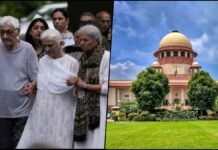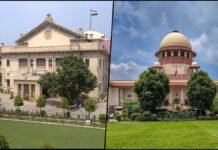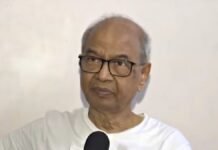
Key Points
- Justice Bhushan Ramakrishna Gavai becomes India’s 52nd Chief Justice, succeeding Justice Sanjiv Khanna.
- He is the first Buddhist and only the second judge from the Scheduled Castes to hold the CJI post.
- Justice Gavai’s tenure will last until November 23, 2025.
- Known for landmark judgments on Article 370, electoral bonds, and demonetisation.
- His career spans nearly four decades, with significant contributions to constitutional and administrative law.
- Justice Gavai has disclosed assets including multiple properties, investments, and gold; liabilities include security deposits and advances.
New Delhi: In a historic ceremony at Rashtrapati Bhavan, President Droupadi Murmu administered the oath of office to Justice Bhushan Ramakrishna Gavai, who today became the 52nd Chief Justice of India (CJI). He succeeds Justice Sanjiv Khanna, whose term ended on May 13. Justice Gavai’s elevation is notable not only for his seniority but also for its social significance: he is the first Buddhist and only the second judge from the Scheduled Castes to ascend to the nation’s top judicial post.
A Legal Journey Rooted in Maharashtra
Born on November 24, 1960, in Amravati, Maharashtra, Justice Gavai began his legal practice in 1985 under the mentorship of Barrister Raja S. Bhonsale, a former Advocate General and High Court judge. After working independently at the Bombay High Court, he established himself at the Nagpur Bench, specializing in constitutional and administrative law. He served as Standing Counsel for several municipal bodies and universities in Vidarbha, and as Assistant Government Pleader and Additional Public Prosecutor at the Nagpur Bench from 1992 to 1993.
By 2000, Justice Gavai was appointed Government Pleader and Public Prosecutor for the Nagpur Bench. His judicial career began in 2003 as an Additional Judge of the Bombay High Court, becoming permanent in 2005. Over 16 years, he presided over benches across Mumbai, Nagpur, Aurangabad, and Panaji, before being elevated to the Supreme Court in 2019.
Supreme Court Tenure and Landmark Judgments
Justice Gavai’s six-year tenure on the Supreme Court has been marked by participation in over 700 benches and authoring around 300 judgments. He played a pivotal role in several Constitution Bench verdicts, including:
- Upholding the abrogation of Article 370, which revoked Jammu and Kashmir’s special status.
- Striking down the electoral bonds scheme.
- Upholding the Centre’s 2016 demonetisation move.
- Supporting the constitutional authority of states to sub-categorise Scheduled Castes for targeted reservation.
He has also presided over high-profile cases granting bail to political leaders and activists, and has been recognized for his balanced, accessible, and inclusive approach to justice.
A Symbol of Inclusivity and Constitutional Morality
Justice Gavai’s appointment is widely seen as a milestone for inclusivity and representation in India’s judiciary. He is only the second Dalit and the first Buddhist to serve as CJI, following in the footsteps of Justice K.G. Balakrishnan. His rise is a source of pride for Maharashtra, particularly Nagpur and Amravati, and underscores the judiciary’s commitment to social diversity.
Asset Disclosure: Properties, Investments, and Liabilities
Justice Gavai has made his assets public in keeping with Supreme Court transparency norms. His declared assets include:
- Real Estate: Residential house in Amravati (inherited), apartments in Bandra (Mumbai) and Defence Colony (Delhi), and agricultural land in Amravati and Katol, Nagpur.
- Investments: Shares and mutual funds, PPF (₹6,59,692), GPF (₹35,86,736), and other investments.
- Movable Assets: Gold ornaments and jewellery worth ₹5,25,859, cash of ₹61,320, bank balance of ₹19,63,584, and other advances totaling ₹54,86,841.
- Liabilities: Security deposit for Mumbai flat (₹7 lakh), advance rent for Delhi flat (₹17.32 lakh), and HUF liabilities (₹1.07 crore).
- Spouse’s Assets: Gold worth ₹29.7 lakh (750g as Streedhan).
A Short but Impactful Tenure Ahead
Justice Gavai’s term as CJI will run until November 23, 2025. Despite the relatively short duration, expectations are high for his leadership on judicial reforms, access to justice, and upholding constitutional values. His legacy will be closely watched as he steers the Supreme Court through a period of significant legal and social challenges.
Justice Bhushan Ramakrishna Gavai’s elevation as Chief Justice marks a new chapter for India’s judiciary-one rooted in deep legal acumen, a commitment to constitutional morality, and a powerful message of inclusivity.





















































